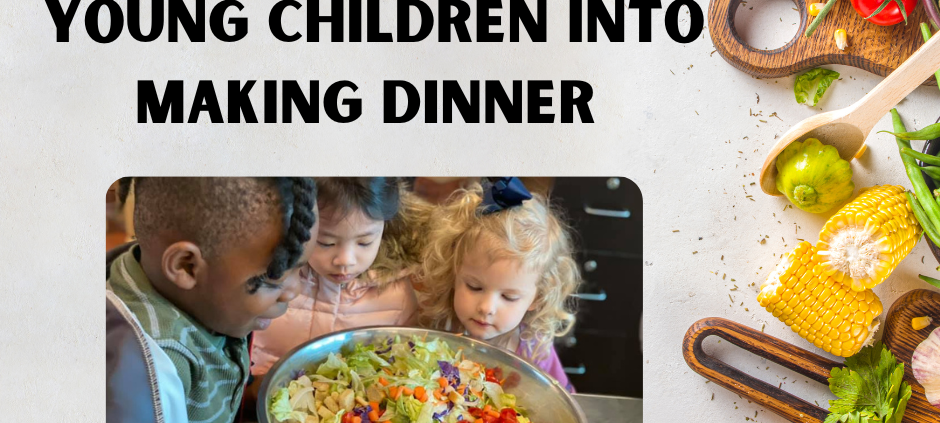Incorporating Young Children into Making Dinner
Cooking is not just about preparing delicious meals; it’s an opportunity to create lasting memories and foster valuable skills in our young ones. By involving your children in the kitchen, you can ignite their curiosity, enhance their creativity, and develop their fine motor skills. In this blog post, we’ll explore the benefits of incorporating young children into making dinner for the family and share some tips for a successful and enjoyable cooking experience.
- Building Confidence and Independence: Inviting children to participate in meal preparation allows them to feel a sense of accomplishment and builds their self-confidence. Assign age-appropriate tasks such as washing vegetables, stirring ingredients, or setting the table. As they contribute to the meal, their sense of independence grows, and they take pride in their culinary creations.
- Developing Motor Skills and Coordination: Cooking engages children in various fine motor activities that promote hand-eye coordination and dexterity. From measuring ingredients and pouring liquids to chopping soft fruits (with supervision) and kneading dough, these tasks enhance their fine motor skills and provide an excellent foundation for future activities such as writing and crafting.
- Exploring Math and Science Concepts: Cooking offers a wonderful opportunity to introduce math and science concepts in a practical and enjoyable way. From counting and measuring ingredients to observing chemical reactions during baking, children can learn about fractions, ratios, temperature, and the transformation of ingredients. They can witness firsthand how different ingredients combine to create delicious dishes.
- Expanding Vocabulary and Language Skills: The kitchen provides a rich language-learning environment. As children engage in meal preparation, they encounter new ingredients, utensils, and cooking techniques. Encourage them to describe what they’re doing, ask questions, and name the items they encounter. This boosts their vocabulary, improves communication skills, and fosters a love for learning.
- Encouraging Healthy Eating Habits: Involving children in meal preparation can positively impact their eating habits. As they participate in planning and creating meals, they become more invested in the food they consume. Encourage them to choose and prepare healthy ingredients, discuss the nutritional benefits of different foods, and explore new flavors and textures. This hands-on approach can inspire a lifelong love for nutritious eating.
Tips for a Successful Cooking Experience:
- Start with simple recipes that are age-appropriate and have few steps.
- Ensure a safe environment by explaining kitchen rules and using child-friendly utensils.
- Allow children to make choices, such as selecting ingredients or deciding on seasonings, to foster autonomy.
- Emphasize teamwork and cooperation, encouraging children to work together and assist each other.
- Create a positive and supportive atmosphere, praising their efforts and celebrating their achievements.
Incorporating young children into making dinner for the family is a delightful and rewarding experience for everyone involved. It nurtures their confidence, creativity, and independence while providing valuable learning opportunities. By embracing their culinary curiosity and fostering a love for cooking, we can inspire a lifelong appreciation for healthy eating and the joy of sharing meals with loved ones. So, tie those aprons, grab those spatulas, and let the cooking adventures begin!



